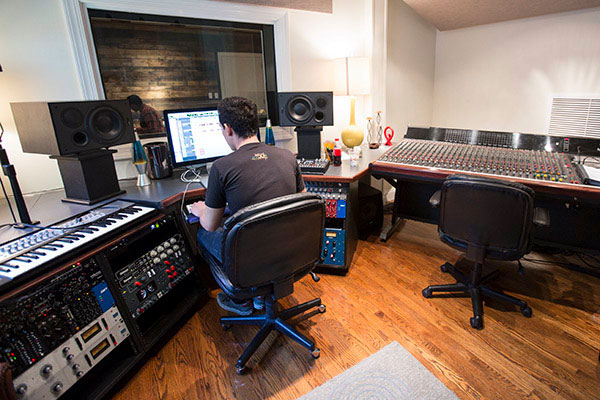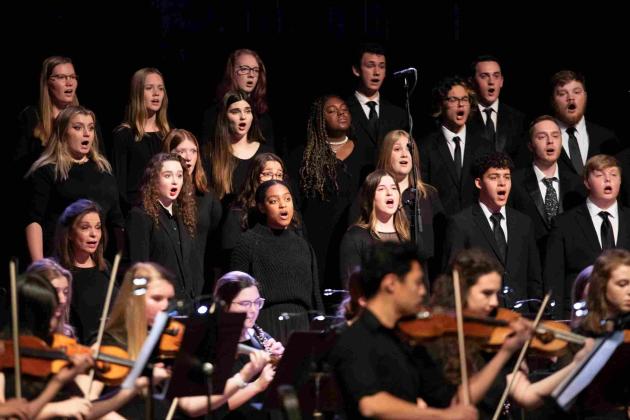Program Overview
“Music Industry” is shorthand for the complicated and constantly evolving web of diverse companies and individuals that coexist in an ecosystem that has evolved to manage the intellectual property rights, performances, and ancillary products that flow from the work of songwriters and musical artists.
Lipscomb’s Music Industry Studies degree offers a broad and deep look at all of the most important aspects of the modern music industry from a uniquely musical and faith-based perspective that is relevant to all genres and markets. You will study the most important music industry issues, including music publishing, record label functions, contracts and negotiations, music licensing, artist development, live music and venue management, marketing for the music industry, and more. Our experiential, mentor-based classes will introduce you to the exciting realms of artist management, booking, music supervision for film and television, and other specialized fields by instructors who have - and in many cases continue to work in those particular areas. Plus you will learn the business of music while becoming a better musician yourself. You will participate in one of our various ensembles and have opportunities to apply your newly acquired expertise in context. You will also have access to high-level industry experts, artists, and songwriters, and will benefit from internships at world-class record labels, publishers, studios, and other institutions.
The music industry is not a "one-size-fits-all" enterprise. Most artists and songwriters will work independently for most or all of their careers. Many industry workers will become freelancers. But labels, publishers, management companies, streaming platforms, and other elements of this complex and growing industry are looking for tomorrow’s leaders today. Between our well-connected faculty, our geographical proximity to Nashville’s growing creative, business, hospitality, and tourism industry, and our missional commitment to equip the next generation to bring light and life to this dynamic space, Lipscomb School of Music’s Music Industry Studies program is ready to help you impact this diverse and exciting field.
Our Faculty
Career Paths
Agents and business managers of artists, performers, and athletes
Represent and promote artists, performers, and athletes in dealings with current or prospective employers. May handle contract negotiation and other business matters for clients.
Music Directors and Composers
Music directors, also called conductors, lead orchestras and other musical groups during performances and recording sessions. Composers write and arrange original music in a variety of musical styles.
Musicians and Singers
Musicians and singers play instruments or sing for live audiences and in recording studios.







